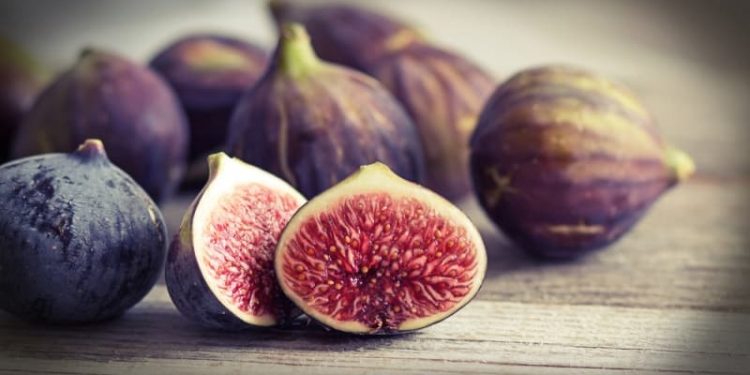Does your skin need regeneration? You are on a diet, but you are craving dessert? Are your bowels working slowly? If your answer is ‘yes’, now is the time to take advantage of the medicinal power of figs, one of the most delicious fruits of the summer months!
Figs are a fruit rich in minerals such as natural sugar, fiber, potassium, calcium, iron. It is also a good source of antioxidant vitamins such as A and K that promote health. Thanks to the rich minerals and vitamins it contains, it provides many benefits to consume figs both fresh in season and dried outside the season.
Nutrition and Diet specialists stated that a healthy adult should consume 2 – 3 servings of fruit per day; “An oversize fig corresponds to about 60 calories. Therefore, 2 – 3 figs can be consumed per day. However, due to its high content of natural fruit sugar and glucose, especially diabetics should not exceed one unit per day.” specialists explained the 7 important benefits of figs and made important recommendations.
7 important benefits of figs

Helps lower high blood pressure
Figs are a good source of potassium mineral, which helps lower blood pressure. Increased salt (sodium) consumption with Western diet and less ingoing of potassium source vegetables and fruits pave the way for cardiovascular diseases, especially hypertension. Scientific studies show that a DASH type diet rich in fruits and vegetables, poor in salt and saturated fat, significantly lowers blood pressure.
It prolongs satiety, helps to lose weight!
Figs, the natural source of sugar, are also a good source of fiber, in other words, pulp. Instead of a dessert containing added sugar and saturated fat, consuming figs containing natural sugar and fiber helps reduce daily energy intake by prolonging the satiety period.
With this effect, it contributes to the maintenance of weight loss diets
For example, consuming one fig with a glass of milk or 10-15 raw nuts helps to balance blood sugar and a feeling of satiety. You can consume figs in this way as a snack or immediately after a low carb meal. However, excessive consumption should be avoided due to the fruit sugar fructose and glucose it contains.”
Helping in the fight against cancer
Figs are a rich source of polyphenols. Polyphenols are antioxidants that protect the human body against oxidative stress. Damage caused by oxidative stress invites many chronic diseases and cancers. One of the most powerful weapons to deal with this is to take advantage of high antioxidant capisite foods, including figs.
Especially dark purple figs are rich in polyphenols that help combat oxidative stress. These beneficial chemicals co-found in fig peel, fruit and leaf. Therefore, eating well-washed figs with peel provides more benefits.

Supports bone health
Figs are a good source of calcium, the most basic mineral that promotes bone health. It also helps to prevent calcium loss while reducing the amount of uric acid and other harmful toxins in the body.
Effective in preventing constipation
The soluble and insoluble pulp found in figs also supports intestinal functions. Figs contain prebiotics that feed the good bacteria that exist in the intestine and promote digestive health. It has a natural laxative effect with its high pulp content, helping to eliminate and prevent constipation. For the best effect on constipation, pulp source nutrients need to be consumed with plenty of water.
Contributes to skin regeneration
In general, a diet rich in vitamins and minerals and high in antioxidants contributes to skin regeneration and slowing down aging. Consuming figs, which are also used in many creams and masks, also helps blood circulation and supports skin health.
Balancing blood sugar
The pulp and potassium found in figs contribute to the balancing of blood sugar. A recent study showed that fig leaf extract reduces the amount of insulin needed by diabetic patients who are addicted to insulin.
Nutrition and Dietary Experts reminded that the amount to be consumed should be taken care of only because figs are a fruit with a high content of natural fruit sugar and glucose, “Thanks to its high pulp content, it is ok for people with diabetes to consume figs as long as they do not exceed a medium fig. However, it is important that this amount is not exceeded.”


